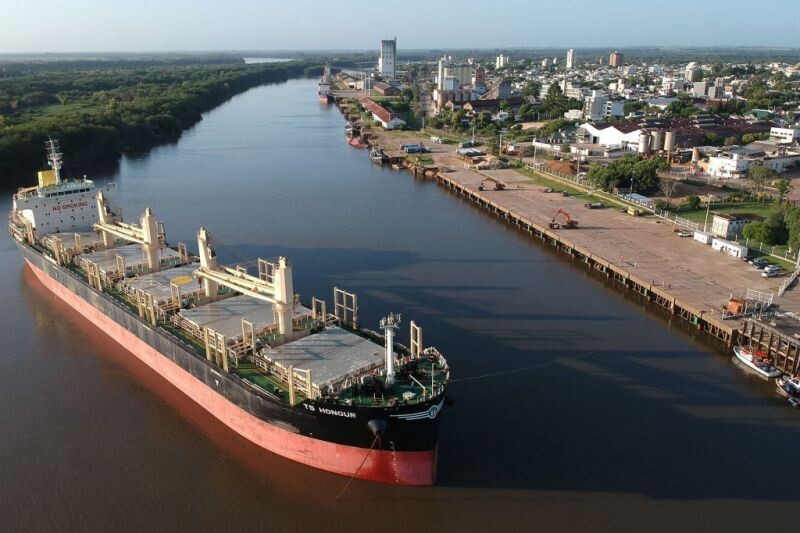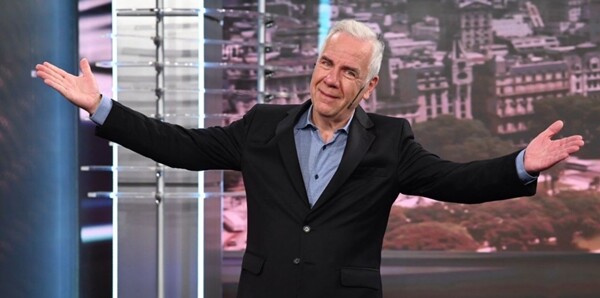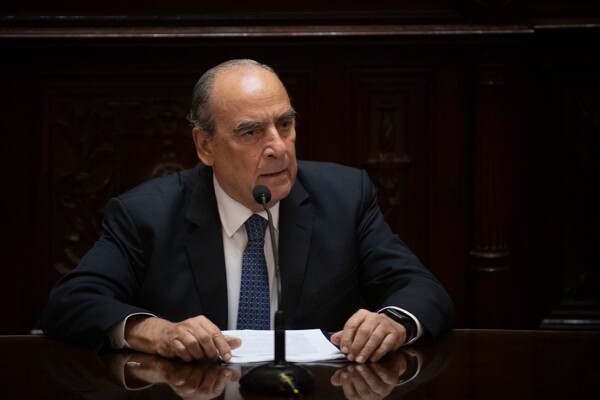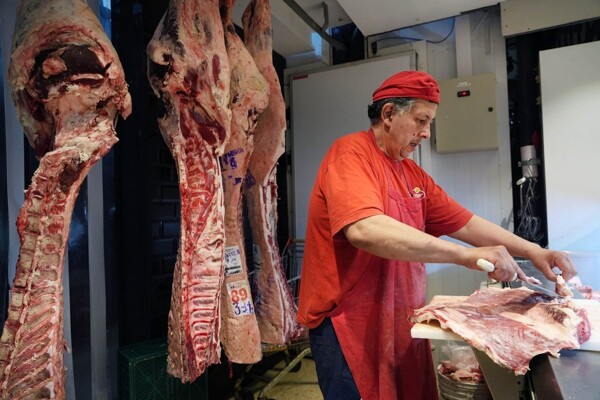
In a high-expectation scenario, this Wednesday the proposals from the companies competing for the bidding of the waterway were announced. Despite the questioning, the Government plans to move forward with the renewal of the concession of the main route for Argentina's foreign trade for 30 years.
Surprisingly, it was revealed this noon that only the Belgian company Dredging, part of the DEME group, applied for the national and international bidding to carry out the dredging and buoying works of the corridor that sets the pace for Argentina's international trade.
The company was the first to take legal action against the Undersecretariat of Ports and Navigable Ways, requesting “immediate suspension” by alleging a bias in the bidding documents from the Government favoring a particular company. The complaint was dismissed by the judicial system, which considered that “to consider the illegality described in this case requires a greater understanding of the issue debated here, requiring the offering of evidence.”
It will now enter a process of analysis that has no deadlines but, however, is subject to challenge should any party consider it. Regarding the validity of the bidding to which only one firm submitted, sector sources explained to El Cronista that although there is no reason to dismiss the bidding for a single bidder, the decision to proceed with the DEME firm is “political.”
The risk seen in this situation is that, for various reasons, the company may abandon the process and create a void in the bidding process, resulting in a loss of time for the start of the new concession. In line with the initial reactions in the official realm, which suggest that “it has always been said that if there was only one offer, whatever it may be, the bidding would be canceled,” the private sector also indicates that “with only one presentation, they will annul or declare it void.”
In the immediate future, it is expected that the Government will carry out a price inquiry for the works being conducted “while a review of the bidding documents is taking place.” “The most likely outcome is that they won't proceed with the openings of envelopes 2 and 3,” indicated a businessman from the sector who has been following the future of the bidding for years. As a precedent, he noted that in 2023 DEME presented an “aggressive” offer for the dredging of the Río de La Plata, with a toll cost 30% lower than the 3.06 u$/trn that was previously paid.
One of the global giants, CCCC Shanghai Dredging (from China Communications Construction Company Limited), a company controlled by China Communications Construction Group (CCCG), was excluded from the bidding that excludes foreign state-owned companies. Meanwhile, the Brazilian company DTA Engenharia cautioned about “unusual and incompatible technical requirements” that would favor the current concessionaire.
The corridor through which 80% of Argentina's foreign trade flows has been the subject of debate for 15 years since the first concession of the Paraguay-Paraná waterway expired. Since then, successive governments have extended the permit until the previous administration transferred control to the General Administration of Ports (AGP), which was recently dissolved by Javier Milei. In its place, the National Agency of Ports and Navigation (ANPYN) will be created, which will absorb the functions and resources of the AGP and the Undersecretariat of Ports and Navigable Ways.
The new bidding is a business estimated at 410 million dollars annually and 12 billion dollars for the total 30-year contract, according to sources from the private sector. It involves a navigable route of more than 3,400 kilometers traversing 5 countries, 79 ports, and represents the main trade route of Argentina, especially for exports from the agro-industrial complex of the region known as “Gran Rosario.” The current bidding consists of granting a private company the concession for at least 30 years for the dredging and buoying works of the waterway.














